On the golf course, the precise estimation of the distance of every shot directly affects your overall score. A golf rangefinder is an essential tool for helping golfers accurately measure their shot distances. But how accurate are golf rangefinders? What are the determinants of accuracy? And how do you choose a high-precision, reliable rangefinder? In this article, all of these questions will be answered for you.
Part 1. How Does Golf Rangefinder Work?
For an accurate distance measurement using golf rangefinders, it's vital to first understand how does golf rangefinder work. There are generally two kinds of rangefinders on the market - laser rangefinders and GPS rangefinders, each providing its own distinct advantage when used under specific playing conditions.
Laser Rangefinders:
These units operate by firing a laser beam towards their target, often the flagstick or another point on the course - and then measuring how long it takes for the signal reflected back from it to return. From this time delay measurement, a rangefinder calculates exactly where players stand with respect to targets.
As these rangefinders utilize line-of-sight measurement directly, laser rangefinders are especially accurate when used at short to mid-range distances; their extreme accuracy even allows for shooting near hazards or reading slopes!
 GPS Rangefinders:
GPS Rangefinders:
By contrast, GPS rangefinders use satellite positioning data to pinpoint an individual on a golf course, then compare that location against a preloaded course map in their device.
By matching up player location with hole or object positions on said map, GPS distance finders determine distance to targets such as holes or other objects on said course map, this makes GPS ideal when flagstick is obscured due to obstructions, blind shots or complex course layouts; they also assist when flagstick visibility is obscured due to obstructions, blind shots or challenging course layouts.
However due to dependence upon satellite positioning data, accuracy can vary significantly due to signal strength vs precision issues and map precision, making GPS rangefinders less precise than laser rangefinders when measuring distance.
Part 2. How Accurate Are Golf Rangefinders?
Rangefinders in golf vary greatly in accuracy depending on the technology they employ, making it important to understand all of their distinctions in order to choose a device which will fulfill your accuracy needs on the course.
Laser Rangefinder Accuracy
Good quality laser rangefinders are extremely accurate, typically producing errors of measurement within +-1 yard or less; top-of-the-line models even more so, with errors as low as +0.5 yards.
Their precision has proven immensely popular among professional golfers and serious amateurs who rely on accurate distance data for strategic shots and accurate readings despite unfavorable course conditions or hilly terrain. Actual measurement via laser reflection ensures consistent readings even in adverse course conditions or hills.
Accuracy of GPS Rangefinders
However, GPS rangefinders often have larger margins of error ranging from +-3 to 5 yards. Their precision depends on factors like satellite signal quality and environmental obstructions such as heavy trees or structures as well as digital course maps loaded into their unit.
Although they offer convenience as they can still be used when the flag is out of view, their less precise nature may not satisfy golfers who require dot-on accuracy for every shot.

Part 3. Key Factors Affecting the Accuracy of Golf Rangefinders
The accuracy of a golf rangefinder can hinge on some key parameters, which decide how accurately the device measures distances on the course:
1. Weather Conditions:
Adverse weather conditions such as heavy fog, direct sunlight or rainfall can disrupt the reflection and reception of laser beams, leading to inaccurate distance measurements from laser rangefinders.
Poor visibility reduces signal quality for laser rangefinders which results in less precise distance readings. Furthermore, harsh weather can significantly weaken GPS signal strength and positioning accuracy.
2. Target Material and Reflective Surface:
The nature of the target being ranged is also an important consideration. Reflective surfaces like reflective tape on flagsticks or smooth metal surfaces offer stronger laser returns for more accurate measurements; on the other hand, rough or absorbent surfaces like heavy foliage, rough terrain or obstructions may diffuse or weaken laser beams making it hard for devices to lock onto desired targets.

3. Anti-Shake and Device Stability:
Movement from your hand when measuring can cause the aiming point to drift away from its target, especially when trying to target something small such as a flagstick. Rangefinders equipped with anti-shake or vibration reduction technology help stabilize laser beam readings for more stable readings, offering increased accuracy.
4. Specialized Technical Features:
Contemporary rangefinders often include advanced functions that improve precision and ease of use, such as
- Flag Lock Technology: this feature allows the device to prioritize and isolate flagstick from objects in its background.
- Slope Compensation: Provides more accurate yardages when shooting uphill or downhill shots, by compensating for elevation differences in distance readings.
- Fast Focus Systems: Allow faster target acquisition with reduced user error.
5. Brand Reputation and Product Quality:
Reputable brands invest more in precise measurement systems, rigorous calibration procedures and reliability tests in order to guarantee stable performance and durability in their units, making them more dependable on the course.
Part 4. How Gogogo Sport Vpro Offers High-Precision Golf Rangefinder?
As a professional rangefinder manufacturer for golf, Gogogo Sport Vpro dedicates itself to delivering accurate, stable, and durable distance measuring golf solutions to golf players and brands worldwide. Our ZeroIn Rechargeable Laser Golf Rangefinder has reached the ultimate in precision and ease of use.

Key Features of ZeroIn Rechargeable Laser Golf Rangefinder:
Excellent Measurement Range & Accuracy:
Using TrueMeasure technology, the ZeroIn can measure up to 1500 yards for Golf and Disc Golf modes and 2500 yards for Hunting mode. It features ultra-accurate ±0.1-yard accuracy with a 500-yard flag lock range, enabling golfers to lock onto thin targets like flagsticks confidently even in poor conditions.
Slope Compensation with On/Off Switch:
Whether aiming uphill or downhill, the intelligent slope compensation will automatically recalculate distance measurements to show the true effective yardage. With an easy slide switch, users can enable or disable this feature to render the device tournament legal.
User-Friendly Design & Display:
Featuring a high-transmittance LCD and a newly designed display interface, the ZeroIn offers clearer and faster target acquisition and reading measurements than ever before.
Rechargeable & Magnetic Mount:
The device features a rechargeable lithium-ion battery with simple Type-C USB charging. It has a magnetic design that allows for easy attachment to golf carts for convenient access during play.

Multi-Mode & Measurement Units:
ZeroIn offers three distinct modes—Golf, Disc Golf, and Hunting/Scan—to suit different sporting needs. One may also choose yards, meters, or feet, providing maximum flexibility.
Durability & Portability:
Constructed of durable plastic housing that's only 176 grams in weight and 4.09\"L x 2.64\"W x 6.57\"H in dimension, it combines lightweight portability with an IP54 water resistance rating for withstanding varying weather conditions.
Included Accessories & Warranty:
Comes with cleaning cloth, user manual, lanyard, storage case, and offers a 2-year warranty for that extra peace of mind.
Whether you are a brand owner, gift distributor, or golf training school, Gogogo Sport Vpro is here to provide you with professional, economic rangefinder solutions that take performance to the next level.
Summary
Golf is a game of precision, where even one-yard variance can determine its outcome. A feature-packed rangefinder not only improves on-course decision-making but also builds your confidence before every shot.
Gogogo Sport Vpro offers reliable, cost-effective rangefinder solutions designed to help you win every game with precision and quality you can trust.
Frequently Asked Questions about Golf Rangefinder Accuracy
Do professional golfers use rangefinders?
While professional golfers generally do not permit using rangefinders equipped with slope and other advanced features in official competition, many utilize them during practice rounds in order to gather course data and refine shot strategy.
Do you really need slope on a rangefinder?
If you play on hilly courses or require more precise distance readings, the slope function is extremely useful. It adjusts for elevation changes to give you the true effective distance. For tournament play, however, you'll need a slope device with a feature that allows it to be turned off in order to be compliant.
Are rangefinders more accurate than GPS?
Yes, laser rangefinders tend to be more accurate than GPS devices. While GPS offers convenience and a wider view of the course, laser rangefinders provide precise measurements within +-1 yard or +-0.5 yards by directly measuring distance to targets.
How to check if a rangefinder is accurate?
To assess a rangefinder's accuracy, compare it with known distances such as course markers or measured practice targets and compare results. Repetition of readings that produce accurate readings provides an excellent indication of its precision.

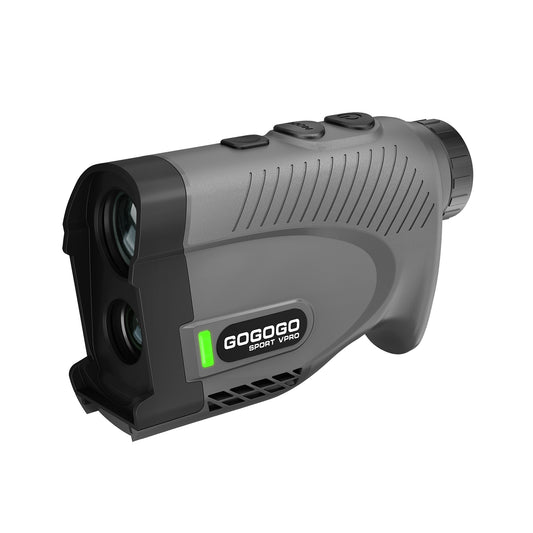
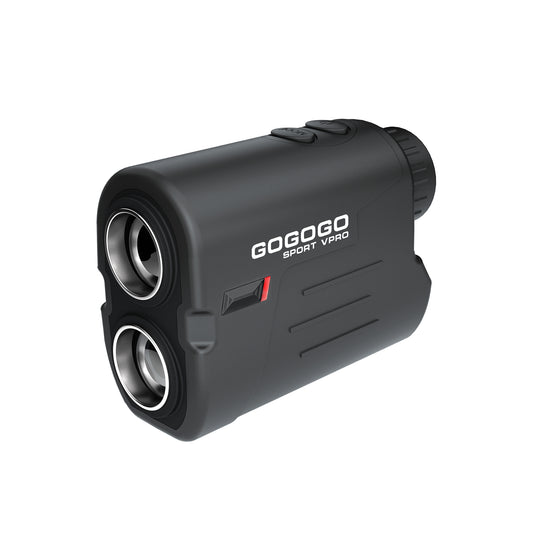
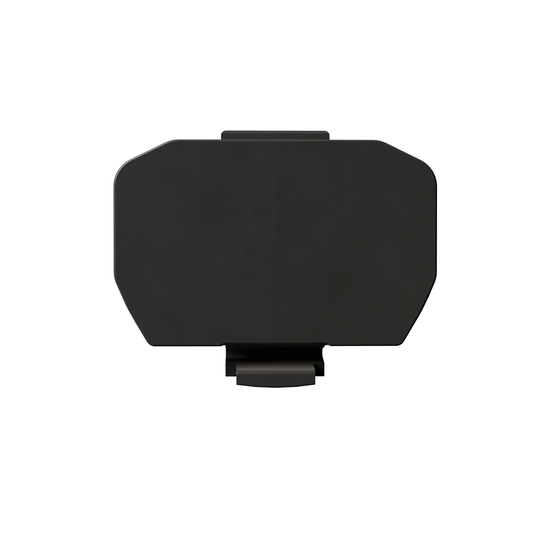
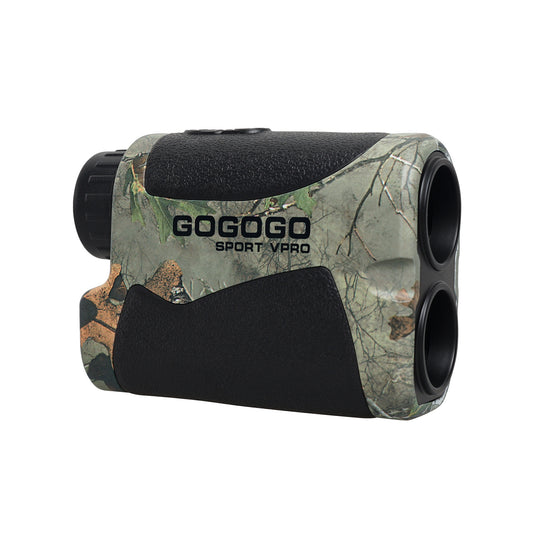
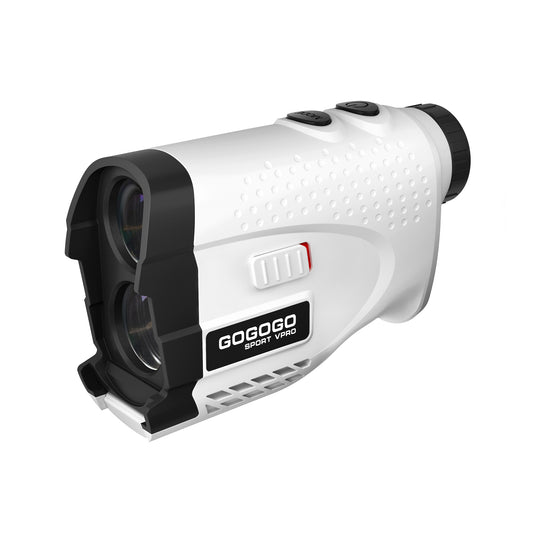
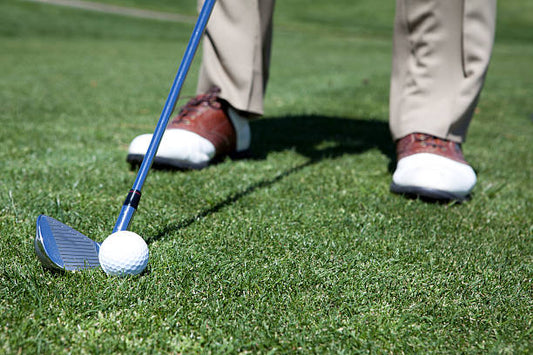
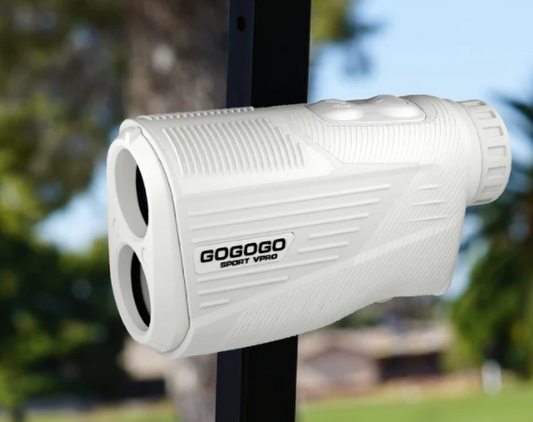
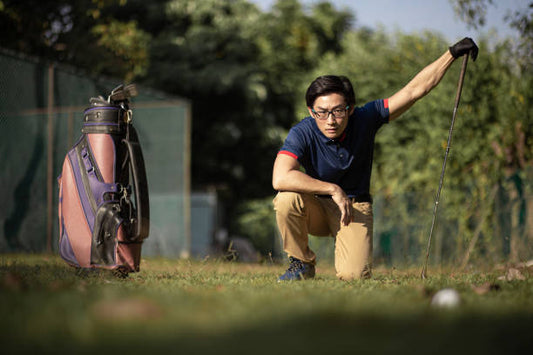
![[2025] The Ultimate Guide to Pinseeker Rangefinders for Golfers](http://gogogosport.com/cdn/shop/articles/gogogo_sport_vpro_pinseeker_rangefinder.png?v=1757993796&width=533)